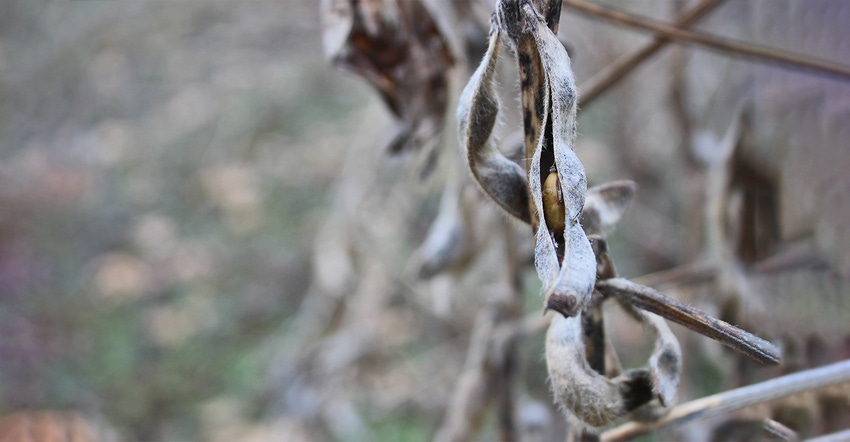
When my girls were little, they loved the television show "Lamb Chop" with Shari Lewis. They would march through the house singing its final song — "This is the song that doesn’t end. Yes, it goes on and on my friend."
As I look outside my window across the gravel road, I am reminded of those lyrics. There is a patch of soybeans still standing. It is a good representation of Missouri farmers’ struggle this year — the soybean season doesn’t want to end.
Farmers had good planting conditions at the start of the 2018 season. Then hot and dry weather set in. A few rain showers. A dry spell. Finally, more rain just in time to bog down harvest. The little patch across the road was too wet to cut when the combines eventually started rolling again.
As I traveled mid-Missouri in the past week, I was surprised at the number of fields with soybean plants, and even a few with corn plants.
How far behind is Missouri ‘s soybean harvest? Well, some fields outlasted the weekly USDA Crop Progress Report.
Nov. 26 was the last weekly report for the year. At that point, 15% of the state’s soybean crop was waiting to be cut. USDA has Missouri nine percentage points behind last year.
The season drag is impacting farmers. Here are a few things to consider:
1. Crop insurance. Double check with your agent to see your end-of-insurance date for turning in claims. For Missouri, it is Dec. 10. If you don’t have your crops harvested, it is hard to determine if you have a claim. Farmers are advised to turn in a potential claim. Visit with your crop insurance agent for more information.
2. Trade mitigation. USDA’s Farm Service Agency Market Facilitation Program allows farmers affected adversely by trade to recoup some of the income losses. It is based on this year’s crop. However, unless you have harvested your soybean crop, you don’t have a yield assessment. Farmers must have their fields harvested to apply. Visit with your local FSA office for more information.
3. Seed selection. The MU Variety Testing Program managed to wrap up soybean harvest during the dry spell at the end of last month. Now, the release of data from these trials is pushed back, according to Jay Nichols, a senior research specialist for the University of Missouri College of Agriculture, Food and Natural Resources. Farmers relying on these results to help determine seed choices for 2019 will wait until mid-December. Check online to see which soybean plot data is available online at MU Variety Testing's website.
So, when will this soybean harvest end? As my husband reminds me, "when the ground freezes." Good thing combine cabs come with heat.
About the Author(s)
You May Also Like






